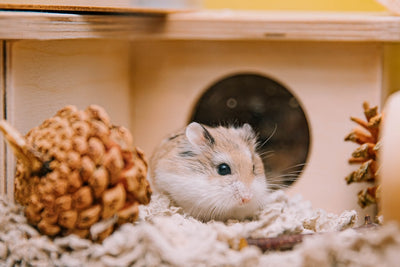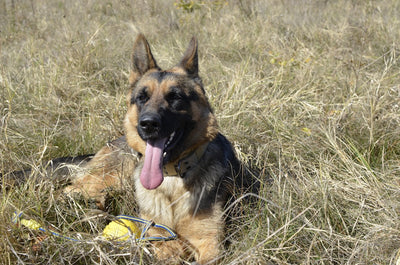
Embark on a journey into the realm of optimal nutrition for your shelled companion with this comprehensive guide. Discover the secrets to maintaining your pet's health and vitality through a carefully curated diet. From identifying the perfect greens to selecting essential supplements, this guide equips you with the knowledge to ensure your tortoise thrives. By delving into the nuances of dietary needs and recommended practices, you pave the way for a fulfilling and enriching relationship with your tortoise. Uncover the art of crafting meals that not only nourish but also delight your pet, fostering a bond built on well-being and contentment. Prepare to immerse yourself in the world of tortoise nutrition and revolutionize the way you approach feeding your beloved companion.
Types of Tortoise Food
When it comes to feeding your pet tortoise, it's essential to provide a well-rounded diet that meets their nutritional needs. Here are some key types of food to consider:.
-
Hay and Grasses: Tortoises require a high-fiber diet, and hay and grasses are excellent sources of fiber. Make sure the hay is fresh and free of pesticides. Timothy hay, Bermuda grass, and alfalfa are good options. The fiber aids in digestion and helps wear down the tortoise's beak and claws.
-
Leafy Greens and Vegetables: Dark, leafy greens like kale, collard greens, and dandelion greens should make up a significant portion of your tortoise's diet. These greens are rich in vitamins and minerals essential for your tortoise's health. Additionally, vegetables like carrots, bell peppers, and zucchini offer variety and additional nutrients.
-
Fruits: While fruits should be given sparingly due to their high sugar content, they can be a tasty treat for your tortoise. Some safe options include strawberries, apples, and melons. Always remove any seeds or pits from fruits before feeding them to your pet. Fruits provide natural sugars and some essential vitamins.
-
Commercial Tortoise Pellets: Commercial tortoise pellets can be a convenient way to ensure your pet is getting all the necessary vitamins and minerals. Look for pellets specifically formulated for tortoises, as they will have the right balance of nutrients. Pellets should not be the primary food source but can supplement a varied diet.
Remember, it's crucial to research the specific dietary requirements of your tortoise species, as different types of tortoises may have slightly different needs. Always provide fresh, clean water for your pet and monitor their eating habits to ensure they are healthy and happy. Consulting a veterinarian with experience in reptile care can also provide valuable guidance tailored to your tortoise's individual needs.
Additional Tips for Feeding Your Tortoise
-
Calcium and Vitamin Supplements: Tortoises, especially young ones, may require additional calcium and vitamin supplements to support their growth and shell development. Consult with a reptile veterinarian to determine if your tortoise needs these supplements and the appropriate dosage.
-
Avoid Toxic Foods: Some foods are toxic to tortoises and should be avoided at all costs. These include avocado, rhubarb, and any plant from the nightshade family (e.g., tomatoes, potatoes, eggplant). Be cautious and do thorough research before introducing new foods to your pet.
-
Feeding Frequency: Depending on the age and species of your tortoise, the feeding frequency may vary. Young tortoises typically require daily feeding, while adult tortoises may only need to be fed every other day. Understanding your tortoise's specific needs is crucial to maintaining their health.
-
Environmental Enrichment: In addition to providing a balanced diet, consider enriching your tortoise's environment. Encourage natural foraging behaviors by scattering food around their enclosure or using puzzle feeders. This mental stimulation promotes physical activity and overall well-being.
By incorporating these additional tips into your tortoise's feeding routine, you can ensure they receive a nutritionally complete diet and lead a happy, healthy life.
Foods to Avoid
Toxic Plants
It's crucial for pet owners to be well-informed about the various toxic plants that could pose a significant danger to their beloved companions if ingested. Common plants such as lilies, daffodils, and azaleas are highly toxic to pets and can lead to severe health issues. To safeguard your pet's well-being, it's imperative to keep these plants out of reach in your home or garden.
High-Fat or High-Sugar Foods
Resist the temptation to share your indulgent high-fat or high-sugar treats with your pet, as these foods can have detrimental effects on their health. For instance, chocolate and grapes are highly toxic to pets and can result in serious illnesses or even be fatal. Additionally, foods rich in fat can lead to pancreatitis in pets, causing pain and discomfort. Prioritize your pet's health by providing them with a balanced diet tailored to their nutritional needs.
Processed Foods
Steer clear of feeding your pet processed foods that are laden with preservatives, additives, and artificial ingredients. These substances can have adverse effects on your pet's health, potentially contributing to obesity and other health issues. Opt for premium-quality, natural pet food options that offer wholesome ingredients and essential nutrients for your pet's overall well-being. By choosing nutritious and balanced meals for your pet, you can help them lead a long and healthy life free from the risks associated with processed foods.
Harmful Human Foods
Apart from high-fat and high-sugar foods, there are other common human foods that can be harmful to pets. Onions and garlic, for example, are toxic to pets and can cause damage to their red blood cells. Avocado, although a popular superfood for humans, contains a substance called persin that can be toxic to pets when consumed in large quantities. It's essential to be mindful of these foods and ensure they are kept out of your pet's reach to prevent any accidental ingestion.
Importance of Hydration
In addition to avoiding toxic plants and harmful human foods, it's crucial to prioritize your pet's hydration. Water is essential for various bodily functions and plays a vital role in maintaining your pet's overall health. Ensure that your pet always has access to fresh, clean water to prevent dehydration and promote optimal well-being. You can also incorporate wet food into your pet's diet to increase their water intake and support their hydration needs.
Regular Veterinary Check-ups
While being mindful of your pet's diet and environment is important, regular veterinary check-ups are also crucial for ensuring your pet's health and well-being. Veterinarians can provide valuable insights into your pet's nutritional requirements, offer preventive care measures, and detect any potential health issues early on. Schedule routine check-ups for your pet to monitor their health status, address any concerns promptly, and provide them with the necessary medical attention when needed.
Conclusion
By being aware of the foods to avoid, maintaining a balanced diet, ensuring proper hydration, and prioritizing regular veterinary care, you can safeguard your pet's health and help them lead a happy and fulfilling life. Remember that your pet's well-being is in your hands, and making informed choices regarding their diet and lifestyle can significantly impact their quality of life. Stay informed, stay proactive, and prioritize your pet's health above all else.
Feeding Schedule and Portions
Establishing a Feeding Routine
Establishing a consistent feeding schedule for your pet is crucial in maintaining their health and well-being. It is recommended to feed your pet at the same times each day to regulate their metabolism and digestion. Consistency in feeding times can also help in monitoring their appetite and noticing any changes in their eating habits.
Portion Control
Proper portion control is key to ensuring that your pet maintains a healthy weight. Overfeeding can lead to obesity and related health issues, while underfeeding can result in malnourishment. Consult with your veterinarian to determine the appropriate portion size based on your pet's age, weight, and activity level. Measuring meals using a standard measuring cup can help in accurately monitoring your pet's food intake.
Supplements
In some cases, pets may require dietary supplements to meet their nutritional needs. Supplements should only be given under the guidance of a veterinarian, as excess amounts of certain nutrients can be harmful to your pet's health. Common supplements include omega-3 fatty acids for skin and coat health, joint supplements for mobility support, and vitamins for overall wellness. Always follow the recommended dosage instructions provided by your veterinarian when incorporating supplements into your pet's diet.
Importance of Water
Water is an essential nutrient for your pet's overall health. Ensure that your pet has access to clean, fresh water at all times. Proper hydration is vital for various bodily functions, including digestion, circulation, and temperature regulation. Monitor your pet's water intake, especially during hot weather or increased physical activity, to prevent dehydration.
Treats and Snacks
While treats can be a fun way to bond with your pet and provide additional nutrients, it's important to offer them in moderation. Excessive treats can contribute to weight gain and nutritional imbalances. Choose treats that are appropriate for your pet's size and dietary requirements. Consider incorporating healthy snack options like fresh fruits or vegetables to add variety to your pet's diet.
Regular Monitoring and Adaptation
Regularly assess your pet's body condition and adjust their feeding schedule and portions as needed. Monitoring your pet's weight, body shape, and energy levels can help you determine if any changes are necessary. Stay in communication with your veterinarian to address any concerns or questions regarding your pet's diet and nutritional requirements. By staying proactive and attentive to your pet's feeding schedule and portions, you can promote their overall health and well-being.
Hydration and Water Needs
The Essential Role of Water in Tortoise Health
Water is a crucial component for the overall health and well-being of tortoises. It plays a fundamental role in various bodily functions necessary for their survival, including aiding in digestion, facilitating nutrient absorption, and regulating body temperature. Without a consistent and sufficient water supply, tortoises are susceptible to dehydration, a condition that can significantly impact their health. Therefore, ensuring access to clean and fresh water at all times is paramount for the welfare of these reptiles.
Methods of Providing Water
There are several effective methods to ensure that tortoises remain adequately hydrated. One common approach is to provide a shallow dish or tray filled with fresh water. The container should be large enough for the tortoise to comfortably soak in but shallow to prevent accidental drowning. It is essential to regularly clean and refill the water dish to prevent the accumulation of contaminants that could harm the tortoise. Additionally, misting the tortoise with water using a spray bottle can help maintain proper humidity levels in the enclosure and encourage hydration. If a tortoise struggles to drink from a dish, allowing it to soak in a shallow bath of water can be beneficial, especially if signs of dehydration are present.
Innovative Hydration Techniques
In addition to traditional methods, some tortoises may prefer specific hydration techniques. For example, incorporating a water feature like a small pond or fountain in the enclosure can entice the tortoise to drink and provide a source of enrichment. Monitoring each tortoise's water intake is crucial as individual preferences and requirements may vary. Moreover, integrating hydrating foods such as fresh vegetables and fruits into their diet can enhance their overall water consumption.
The Significance of Proper Hydration
Maintaining adequate hydration levels is essential for proper tortoise care. By implementing a variety of hydration methods, monitoring water consumption closely, and offering hydrating foods, tortoise owners can ensure that their pets remain healthy and thrive. Remember, a well-hydrated tortoise is a happy and healthy tortoise!.
Conclusion
Providing the right diet for your tortoise is essential for their health and well-being. By following a balanced diet that includes a variety of vegetables, fruits, and occasional treats, you can ensure that your tortoise receives the necessary nutrients for a long and healthy life. Remember to consult with a veterinarian or reptile specialist for specific dietary recommendations based on your tortoise's species and individual needs. By being mindful of their nutritional requirements, you can help your tortoise thrive and enjoy a happy life as part of your family.






